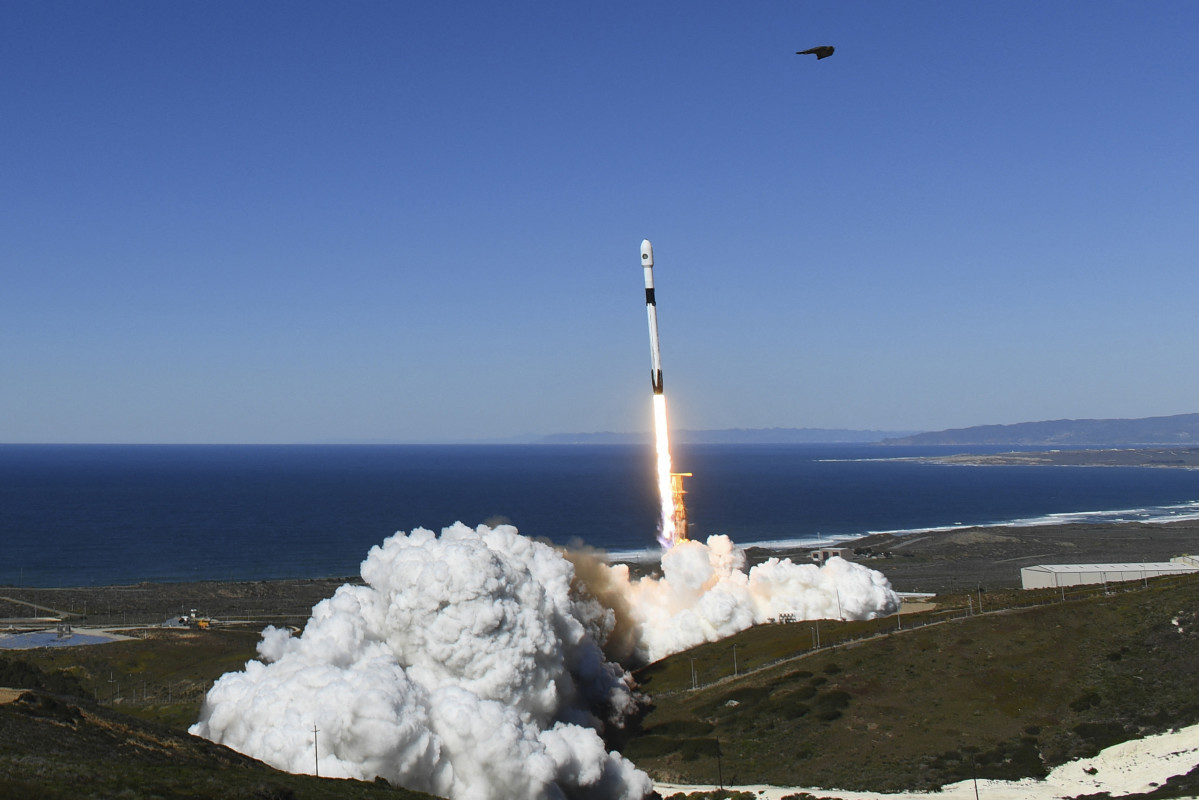
Faced with ongoing barriers to the second, much-anticipated test flight of SpaceX's Starship project, the world's leading private space company is looking to make good on a slightly different experiment. SpaceX, according to documentation, has requested a "Special Temporary Authority" from the Federal Communications Commission to launch its Gen2 satellites.
The goal, according to the filing, is to "launch and test its non-geostationary orbit NGSO second generation Gen2 satellites with direct-to-cellular communications payloads to connect unmodified cellular phones directly to SpaceX Gen2 satellites."
Related: Elon Musk is frustrated about a major SpaceX roadblock
The effort, made in conjunction with telecommunications giant T-Mobile (TMUS) -), is meant eventually to entirely eliminate cellular "dead zones," ensuring 100% cellular connectivity through Starlink, all the time.
This latest effort to connect Starlink's low-Earth orbit satellites to cell phones comes a little more than a year after SpaceX and T-Mobile announced a partnership to achieve a new plan dubbed "Coverage Above and Beyond," an effort to radically decrease those dead zones.
Despite increasingly powerful wireless networks, T-Mobile said at the time that there remain more than 500,000 square miles in the U.S. that are "untouched by cell signals from any provider."
The phone company said that it shares a vision with SpaceX to enhance global connectivity; once the vision becomes a reality, the majority of phones on T-Mobile's network will be automatically compatible with the new service.
“We’ve always thought differently about what it means to keep customers connected, and that’s why we’re working with the best to deliver coverage above and beyond anything customers have ever seen before,” Mike Sievert, CEO of T-Mobile, said in a statement at the time. “More than just a groundbreaking alliance, this represents two industry-shaking innovators challenging the old ways of doing things to create something entirely new that will further connect customers and scare competitors.”
It remains unclear when exactly this network might go live. SpaceX did not respond to a request for comment.
Related: One of Elon Musk’s multi-billion dollar SpaceX promises just came up short
In April, AST SpaceMobile, a satellite company partnered with AT&T (T) -), successfully completed what it called the first-ever phone call routed from space between two unmodified smartphones.
"This is the first time anyone has ever achieved a direct voice connection from space to everyday cellular devices, demonstrating a significant advancement in AST SpaceMobile’s mission to provide connectivity to the nearly 50% of the global population who remain unconnected from cellular broadband," AST said in a statement at the time.
Shares of T-Mobile are down around 2% for the year.
Action Alerts PLUS offers expert portfolio guidance to help you make informed investing decisions. Sign up now.







